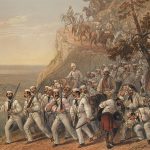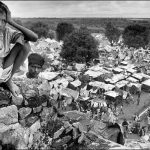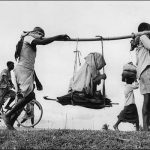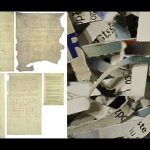Millions of tweets and millions of state documents. Intimate oral histories and international radio addresses. Ancient pottery and yesterday’s memes. Historians have access to this immense store of online material for doing research, but what else can we do with it? In Spring 2018, graduate students in the Public and Digital History Seminar at UT Austin experimented with ways to make interesting archival materials available and useful to the public; to anyone with access to a computer. Over the Summer, Not Even Past will feature each of these individual projects.
Jonathan Seefeldt’s digital project “Mercenary Monks” provides a glimpse into the lives and continuing legacy of the Dadupanthi Nagas—an early modern monastic community from the semi-desert region of western India. Poems, photographs, and other documents illuminate a monastic world of raising mercenary armies, caring for widows and child brides, providing credit and other banking services, collecting tax revenue from farmers, providing merit and prestige to an emerging merchant class, and asserting a (short-lived) form of political independence.
More on Seefeldt’s project and The Public Archive here.
You may also like:
Indrani Chatterjee on Monasteries and Memory in Northeast India
Indian Revolt of 1857, a digital project by Anuj Kaushal
Victoria & Abdul: Simulacra and Simulation by Gajendra Singh



